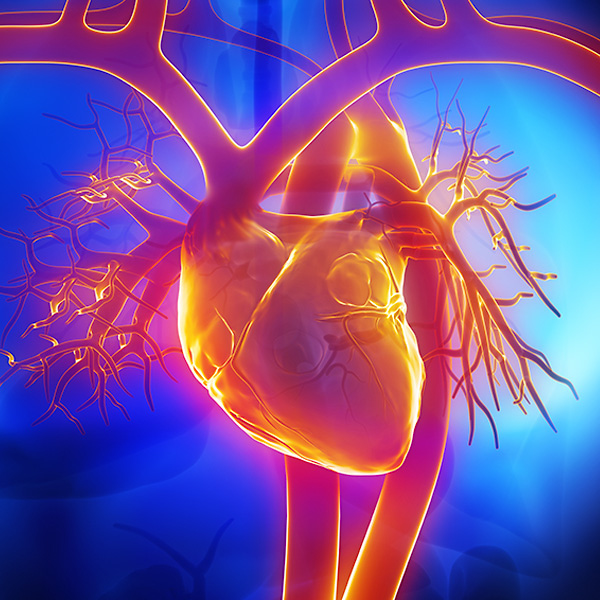Ventricular Arrhythmia
Overview and Facts about Ventricular Arrhythmia
Ventricular arrhythmia is a heart condition in which your heart beats too quickly. This type of arrhythmia begins in the two lower chambers of the heart, known as the ventricles. An abnormally fast heartbeat can limit the amount of oxygen in your blood. Over time, this condition can trigger organ failure or sudden cardiac arrest.
Ventricular arrhythmias develop due to problems with the electrical signals that control your heartbeat. Usually, your heartbeat begins in the heart's upper chambers, or atria, then travels throughout your heart, causing it to contract and pump blood through your body. For individuals with ventricular arrhythmia, this electrical pattern becomes disrupted.
There are two main types of ventricular arrhythmia: ventricular tachycardia (VT) and ventricular fibrillation (VFib). Both can be life-threatening.
Causes and Risk Factors of Ventricular Arrhythmia
Ventricular arrhythmia develops when the electrical signals controlling your heartbeat are delayed or blocked. In some cases, the signals also travel throughout the heart in an erratic or abnormal pattern.
Causes of VT include:
- Previous heart attack
- Heart conditions (such as congenital heart disease)
- Past heart surgery
- Low levels of sodium or potassium
- Certain medications
Causes of VFib include:
- Previous heart attack
- Electrocution
- Heart injury
- Certain medications
Most people with ventricular arrhythmia have a history of heart problems, but the condition can sometimes occur in a normal, healthy heart.
Signs and Symptoms of Ventricular Arrhythmia
Symptoms of ventricular arrhythmia include:
- Chest pain
- Fainting
- Palpitations
- Dizziness
- Shortness of breath
Symptoms of VT can come and go, but symptoms of VFib might appear suddenly and worsen over a short period of time.
Tests and Diagnosis of Ventricular Arrhythmia
Arrhythmias can often be diagnosed with an electrocardiogram (ECG or EKG). During this procedure, a medical professional attaches several sensors to your body. These sensors record the electrical signals passing through your heart.
Your doctor might recommend using a Holter monitor or portable event recorder. These ECG devices are worn anywhere from 24 hours to 30 days and help track your heart rhythm over time.
An implantable loop recorder can also help diagnose an arrhythmia. This small device, surgically placed under the skin on your chest, records electrical signals for up to three years.
Treatment and Care for Ventricular Arrhythmia
Treatment options depend on your medical history and the type of arrhythmia you experience. In some cases, your doctor may recommend treating your arrhythmia with medication or lifestyle changes. Surgery might be necessary.
Ventricular arrhythmia can sometimes be treated with radiofrequency catheter ablation or cardioversion. An ablation procedure destroys small areas of abnormal heart tissue that may be causing an abnormal heartbeat. Cardioversion procedures use medication or electric shocks to correct an abnormal heart rhythm.
If you are at high risk for sudden cardiac arrest, your doctor might recommend an implantable cardioverter-defibrillator. This device is surgically placed in your body and connected to your heart. If your heart begins to beat abnormally, the device delivers an electric shock to restore normal heart rhythm.

Request an Appointment
Loyola Medicine heart and vascular specialists have the experience and technology to treat the most difficult cardiac and vascular conditions. Schedule an appointment today.
Schedule a Telehealth Appointment
